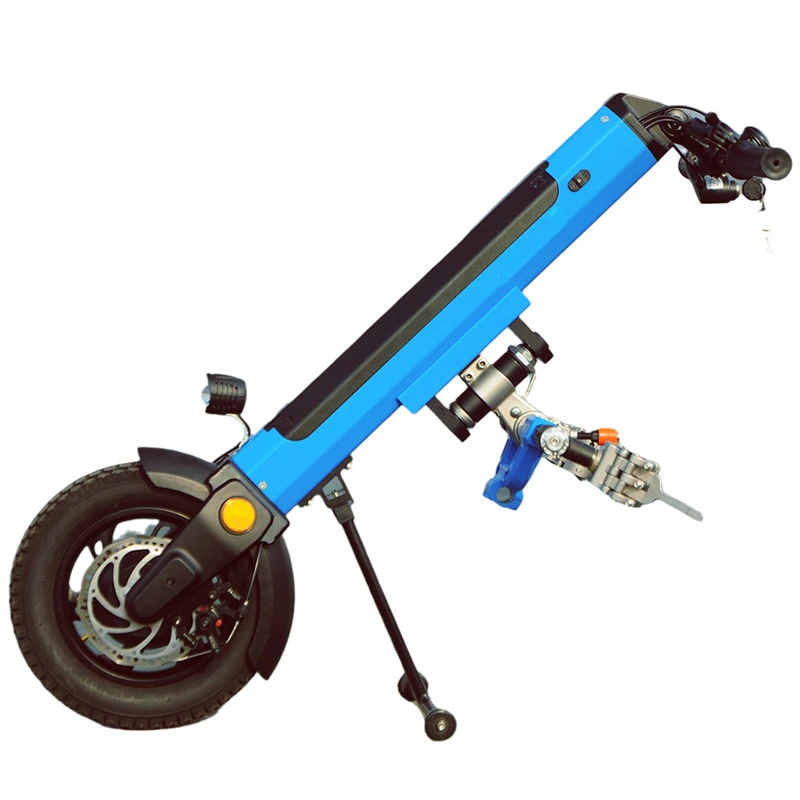Types of Wheelchair Warranties Offered by Manufacturers
Wheelchair warranties are crucial for providing consumers with peace of mind regarding their investments. Various types of warranties cater to different needs and preferences. Typically, the two primary types are comprehensive warranties and limited warranties. Each type has its specific coverage limits and conditions associated with it.
Comprehensive Warranties
Comprehensive warranties, often known as bumper-to-bumper warranties, cover almost all parts of the wheelchair. They might include the powertrain, electronic systems, and structural components. These warranties generally last for one to five years, depending on the manufacturer.
Limited Warranties
Limited warranties cover specific parts or systems of a wheelchair. Commonly covered parts include the frame, motors, and battery. The duration of a limited warranty can vary, usually ranging from one year to the product's lifetime for critical components.
Duration and Coverage of Wheelchair Warranties
Understanding the duration and coverage of wheelchair warranties is vital for making informed purchasing decisions. Duration typically depends on the type of wheelchair and the manufacturer's policies.
Standard Warranty Duration
Standard warranties offered by manufacturers usually last between one to three years. This period often covers essential components and is applicable for both manual and power wheelchairs. It's crucial for users to understand which parts are covered during this period.
Extended Warranty Options
Manufacturers often provide extended warranty options for consumers seeking additional coverage. These can extend the warranty period by several years, thus covering parts prone to wear and tear, such as batteries, motors, and electronics.
Limitations and Exclusions in Wheelchair Warranties
Every warranty comes with its limitations and exclusions, which consumers must be aware of to avoid unexpected costs. These are clearly outlined by manufacturers to define the boundary of their responsibility.
Common Exclusions
Exclusions often include normal wear and tear, misuse, and modifications not approved by the manufacturer. Routine maintenance parts such as tires and upholstery are typically not covered.
Conditions for Warranty Validity
To maintain warranty validity, consumers must adhere to usage guidelines and maintenance routines recommended by the manufacturer. Failing to do so can lead to denied claims.
Benefits of Extended Wheelchair Warranties
Extended warranties are advantageous for wheelchair users looking to safeguard their investment post the standard warranty period. These warranties provide long-term financial protection and peace of mind.
Financial Security
With repair costs reaching hundreds or even thousands of dollars, extended warranties help mitigate financial burdens by covering unexpected repair expenses.
Customization Options
Some extended warranties offer customizable options, allowing consumers to select coverage that best fits their usage patterns and potential risk factors.
Eligibility Requirements for Wheelchair Warranties
Eligibility requirements are critical to ensuring consumers receive the intended warranty benefits. Manufacturers often set specific conditions that must be met.
Purchase From Authorized Dealers
Warranties are usually valid only if the purchase is made through authorized dealers. This ensures that the product is genuine and eligible for full warranty coverage.
Registration and Ownership
Warranty validity requires that the wheelchair be registered with the manufacturer, often limited to the original owner. This non-transferable aspect is crucial for warranty claims.
Warranty Options for Custom or Specialized Wheelchairs
Custom and specialized wheelchairs come with unique warranty considerations due to their tailored configurations. Manufacturers offer specific warranties for these types of wheelchairs.
Custom Wheelchair Warranty Features
Warranties for custom wheelchairs often cover the frame and specific customizations. However, additional custom features may require separate agreements or insurance.
Factory-Specific Specializations
Manufacturers may provide factory-specific warranties for unique technologies or designs integrated into the wheelchair, ensuring specialty parts are covered.
Comparison of Warranties Between Manufacturers
Different manufacturers offer varying warranty terms and conditions. A comparative analysis is essential for consumers seeking the best warranty options.
Warranty Duration Comparison
Warranty durations can differ significantly among manufacturers, with some offering up to a lifetime on structural components, while others may provide shorter terms.
Service and Support
The quality of service and support available under a warranty can influence a consumer’s decision. Factors like the ease of the claims process and response time are important considerations.
Case Studies: Successful Warranty Claims
Examining real-world cases of successful warranty claims provides insights into how warranties function effectively when properly managed.
Resolving Mechanical Failures
Case studies show that adhering to manufacturer guidelines is crucial for successful claims, particularly in resolving mechanical failures like motor or frame issues.
Customization-Related Claims
Claims related to custom wheelchairs are often handled with precision, highlighting the need for detailed documentation and understanding of coverage limits.
The Role of Dealers in Wheelchair Warranty Claims
Dealers play a pivotal role in facilitating warranty claims, acting as intermediaries between consumers and manufacturers.
Dealer Support Services
Authorized dealers often provide valuable support services, such as assisting with the documentation and submission of warranty claims to expedite the process.
Ensuring Proper Maintenance
Dealers can offer maintenance services that align with warranty requirements, ensuring that consumers maintain eligibility for warranty claims.
Future Trends in Wheelchair Warranty Policies
The landscape of wheelchair warranties is evolving, with manufacturers incorporating new trends to enhance consumer confidence and protect investments.
Technological Integration
Future warranties may increasingly cover technological enhancements, reflecting the growing integration of software and connectivity features in modern wheelchairs.
Environmental Considerations
Manufacturers may introduce sustainability-focused warranties, emphasizing eco-friendly materials and production processes.
Excellent Provide Solutions
To maximize the benefits of wheelchair warranties, consumers should first ensure their purchase is from authorized dealers and register their product promptly. Regular maintenance in line with manufacturer recommendations is crucial. Consider extended warranties for long-term peace of mind, particularly for custom configurations. Stay informed about your specific warranty’s terms to avoid denied claims. Engaging with dealers for service support can also streamline the claims process, ensuring a hassle-free experience.
User hot search: heavy duty electric wheelchair
Post time: 2025-07-09 12:56:06

.png)





































